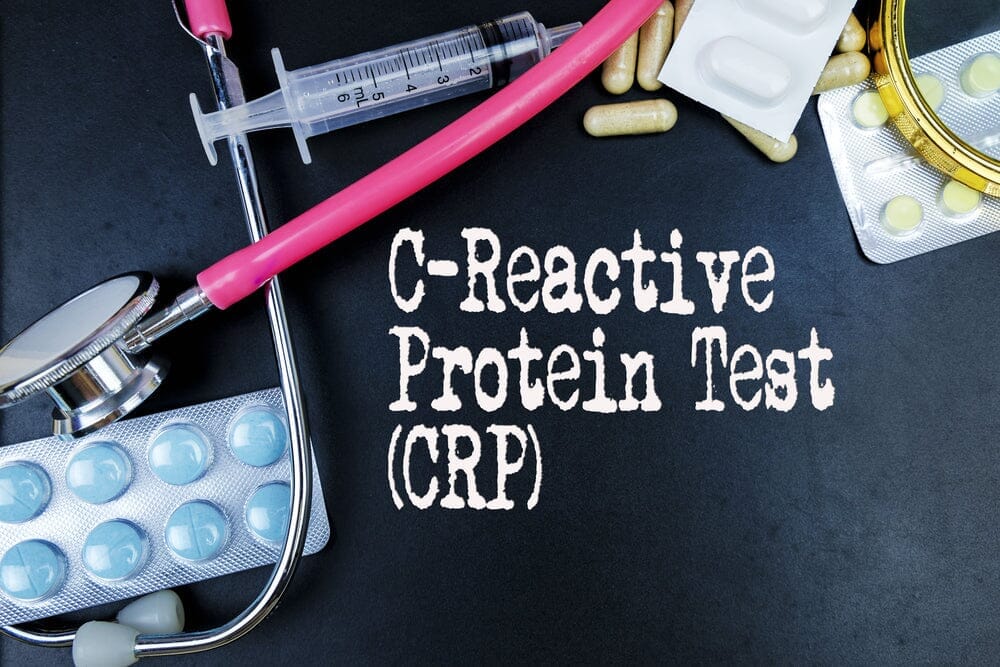
When Should You Get a CRP Test? Early Symptoms to Watch For
Time to read 6 min
Time to read 6 min
What is the C-reactive protein test? It is a blood test that diagnoses the presence of inflammation within your body and may serve as an indicator of various conditions. CRP is a liver-produced protein, and high levels within the bloodstream may indicate various infections or autoimmune diseases.
Even heart disease may manifest through these levels. The CRP test plays a huge role in diagnosing such conditions early and monitoring their progression, making it a very important part of routine screenings for at-risk individuals. It is very important to understand when to get a CRP test. In this article, we will explore what CRP is, the importance of CRP testing, and the early symptoms that may indicate when to get a CRP test.
C-reactive protein is short for CRP and is produced in the liver and goes into the blood circulation once there has been body inflammation. A very responsive immune response in cases of infections, injuries, or chronic inflammation may be characterized by high levels of CRP.
In simpler words, CRP acts as a marker that lets people know where the inflammation might be coming from in their body. The CRP levels are measured in milligrams per litre of blood, and testing high-sensitivity CRP will find even slight changes in CRP levels, which are mainly used to assess risk from heart disease. CRP in your blood is one of the most important measures for checking the activity and levels of inflammation in your immune system.
A c reactive protein CRP test has the benefit of diagnosing and monitoring many inflammatory diseases. An elevated level of CRP points to several diseases, ranging from infections and autoimmune diseases, such as rheumatoid arthritis and lupus, to cardiovascular diseases. This is important if you have inflammation in your body.
Such high CRP levels in the blood often urge doctors to further diagnose to identify the causative agent. CRP also serves as a follow-up test for known diseases that helps monitor improvement status. Whether it is a routine check-up or a follow-up program, a C-reactive protein test provides one with an idea of how they are doing.
Rheumatoid Arthritis: Patients suffering from rheumatoid arthritis suffer from pains, stiffness, and swelling of the joints, which might be indications of inflammation.
Lupus: Its symptoms may typically comprise features such as exhaustion, a butterfly-shaped rash, and a problem with joint aching or pains. There can be inflammation in your body.
Infections: localized painful sensations, erythema, swelling at the locale, and systemic complaints, which often present with the following generalized symptoms, such as pyrexia.
Heart Disease: Its characteristics may include problems related to shortness of breath or painful chest sensations due to an extreme feeling of fatigue. More significantly, it may call for a blood test to evaluate possible CRP.
Other Autoimmune Diseases: These could be IBD with associated skin rash, muscle weakness, or specific organ involvement.
Early detection of symptoms and, when necessary, testing for CRP are important in the management of inflammation. Whether one is assessing the risk of heart disease, monitoring autoimmune diseases, or checking on recovery post-surgery, CRP testing offers essential information. Being proactive and consulting your healthcare provider can help you take the first steps to a healthy life and better manage inflammation in the body.
You might consider a reactive protein CRP test if you have persistent fatigue, fever, or joint pain that doesn't have a specific cause, or if you are diagnosed with an inflammatory or autoimmune disease. Moreover, you should get the CRP blood test if you are in the risk group of heart diseases, especially when recovering from surgery or infection, as the body response is measured through CRP measures.
A c reactive protein CRP test may be done for patients who come into the hospital with symptoms such as inflammation, fever, or pain, and also for patients diagnosed with diseases such as rheumatoid arthritis, lupus, or heart disease. Routine check-ups, especially for patients with a history of inflammatory diseases or heart conditions, may also need a CRP test.
A doctor may order a reactive protein CRP test to check on inflammation in the body and help in diagnosing infections, autoimmune diseases, or heart issues. c reactive protein CRP levels can be quite valuable as markers for determining whether further testing is required or if treatments will reduce inflammation.
Get tested for a c reactive protein crp when you sense early symptoms of inflammation, for example, persisting tiredness, fever, mysterious weight loss, or when you are symptomatic about diseases, such as heart disease, rheumatoid arthritis, or lupus. Additionally, if you have just gone through a major surgery or an illness that is supposed to have some significant inflammation, it may be monitored and followed up.
It is associated with signs and symptoms of inflammation, such as fatigue, fever, muscle aches, joint pain, shortness of breath, or chest pain, which may be indicative of heart disease in more serious cases.
* Medical Disclaimer: The following information is for educational purposes only. No information provided on this website, including text, graphics, and images, is intended as a substitute for professional medical advice. Please consult with your doctor about specific medical advice about your condition(s).



